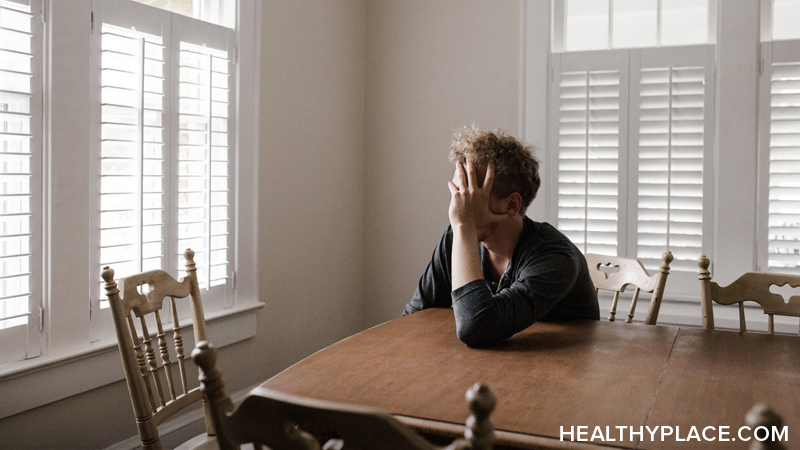What to Do When Depression and Loneliness Overtake You

Depression and loneliness are a miserable combination. Loneliness has less to do with how many people you are surrounded by and more to do with how isolated and alone you feel. Someone living with depression might be in the middle of a room full of friendly loved ones yet feel alone on a tiny island of misfit self. Feeling lonesome affects depression on both ends: loneliness can contribute to this crushing disorder, and it can be an unwanted effect of it, too. Studies have found that loneliness plays a bigger role in depression than shame and guilt, two other very powerful components of the illness. The good news is that even when depression and loneliness overtake you, you can do something to reduce their effects.
Loneliness and Depression Feed on Each Other
One reason why loneliness is so devastating is that it leaves an essential need unmet. In the middle of the last century, renowned psychologist Abraham Maslow developed what became known as Maslow’s hierarchy of needs, an explanation of the fundamental requirements for human growth, development, and flourishing (Broderick & Blewitt, 2006). Love and belonging are one of the basic human needs that, when unmet, contribute to mental health problems like depression.
While there are many individual differences in the type and amount of connections needed, in general, human beings require social connections, friendships, intimacy, acceptance, and belonging. Depression can develop when someone lacks love and belonging. On the other hand, when someone is depressed, it’s difficult to form and maintain meaningful connections. Depression and loneliness often perpetuate each other in a way that feels devastating.
Loneliness and depression feed off each other and lead to damaging beliefs like:
- No one understands me
- I can’t be myself around others
- I can’t find people I want to be around
- I’m not worthy of love or friendship
Feeling unworthy is a common experience with depression, and it contributes to deeper isolation and loneliness. It fuels self-hatred, a feeling that makes you feel separate not just from others but from your own self, too.
Depression, Loneliness, and Self-Loathing
A recent study conducted in the United Kingdom found that self-hatred and disgust is a connecting point of depression and loneliness (Ypsilanti et al., 2018). Someone with depression typically has a lot of negative thoughts, many of which are directed at themselves. Self-worth plummets, and people isolate. To make things worse, they blame themselves for being alone.
Changing your thoughts about yourself to make them more realistic is an important first step in overcoming the loneliness of depression. Some ways to create new, accurate self-beliefs include:
- Catch yourself ruminating over your shortcomings. When you notice negative thoughts, gently shift your attention to something in your here-and-now (this is known as mindfulness).
- Develop self-compassion by acknowledging your imperfections (everyone has them) but focusing more attention on your positive qualities (everyone has these, too—you included).
- Use affirmations. Write down short, positive statements about yourself and post them where you can see them. Repeat them often.
- Reframe your thoughts (“I don’t deserve friends because I’m never there for them,” might become “I’ve made mistakes, but that doesn’t mean I don’t deserve friends. Everyone makes mistakes.”
Loneliness and depression involve more than self-hatred, of course, and there are other things you can do to end their vicious cycle.
Things You Can Do When Loneliness and Depression Overtake You
Try these strategies to stop feeling lonely with depression:
- Identify what is bothering you most, loneliness or another depression symptom. Start there. Working on one area helps the other.
- Consider this a dual process of decreasing the negative and growing into your vision for yourself and your life. Address both for the best results.
- Work on your whole self and all your needs: love and belonging, safety, self-esteem, appreciation of beauty, creativity, and cognitive needs like knowledge, understanding, and curiosity.
- Discover one interest and seek others that share it. Check into community centers or online sites like meet-up.
- Join support groups.
- Adopt a pet and find others who have the same love. Local pet stores and shelters often have bulletin boards with group information. Online searches for local pet groups can work, too.
- See a therapist to help you with negative thoughts, depression, self-esteem, and communication skills
Overcoming loneliness and depression isn’t a quick and easy task, but it is absolutely possible. The more you take action to work your way into a sense of belonging, the easier it becomes and the better it works. Create belonging and thrive.
APA Reference
Peterson, T.
(2022, January 4). What to Do When Depression and Loneliness Overtake You, HealthyPlace. Retrieved
on 2026, March 5 from https://www.healthyplace.com/self-help/depression/what-to-do-when-depression-and-loneliness-overtake-you



